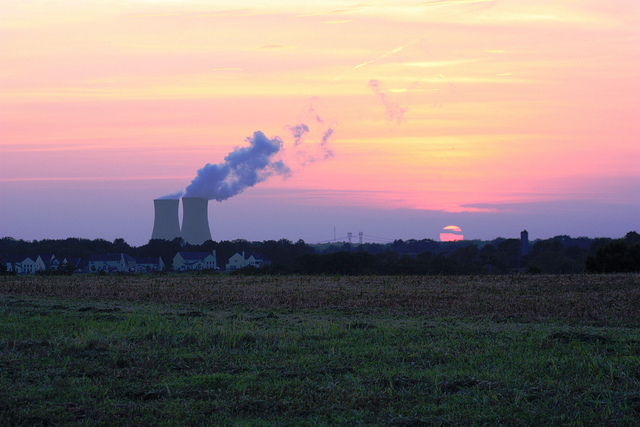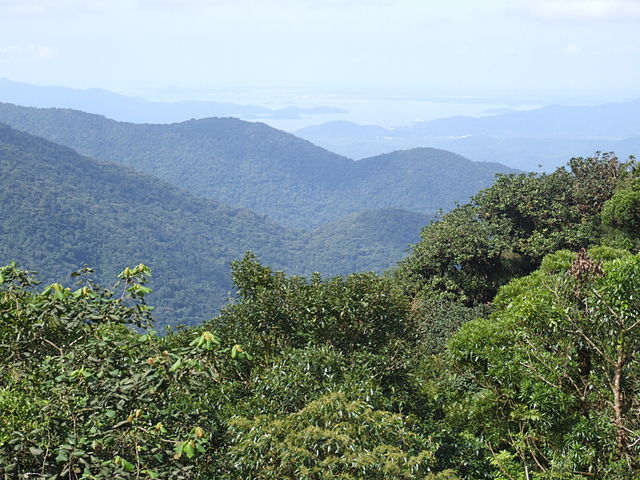
It is no coincidence that the energy sector, which has contributed much to altering Earth’s atmosphere, is itself now in danger from climate change. From fuel transport to thermoelectric power generation to oil and gas exploration/production, the energy sector is facing disruption and damage risks from extreme weather and climate change effects.
National Geographic calls it the ultimate greenhouse gas irony, in its article featuring the recently released DOE report “U.S. Energy Sector Vulnerabilities to Climate Change and Extreme Weather”. The DOE report highlights the growing list of climate change impacts already observed not only in the U.S. but in many parts of the world as well. The report also proposed safeguards for a more climate-resilient U.S. energy sector as well as possible future technology opportunities.
According to the DOE report, at least 3 major climate trends are relevant at present to the energy sector. These are:
- Increased intensity and frequency of sea level rise, flooding, and storms
- Increased temperature of both air and water
- Decreased water availability in some regions and seasons
The potential implication of climate trend projections will weigh heavily on all aspects of the energy infrastructure, though not equally. Some, like thermoelectric power generation infrastructures, have already experienced disruption and damage from extreme weather events. These include coal and nuclear power plants. Aside from severe storms and flooding, these are also vulnerable to increasing air and water temperatures which could reduce plant efficiencies and available generation capacities.
Other parts of the energy sector like the emerging technologies of bioenergy and biofuels production are also not exempted from the impacts of climate change. Decreasing water availability and extended growing seasons among other factors put these sectors at risk, with potential implications of increased/decreased production and increase of both irrigation demands and crop damage. Even renewables like wind and solar PV can be affected by variation in wind patterns and decrease in water availability, which could imply reduced potential generation capacities.
Tackling these challenges in the energy sector will never be simple. But nor would building of the same do much to reduce vulnerability, not to mention mitigate climate change. The DOE proposed several safeguards to protect the existing energy infrastructure against climate events. These include updating and improvement of power grids through:
Proposed DOE Mitigation Efforts Via Power Grid Updates:
- Deployment of smart grid technologies
- Optimized energy storage technologies
- Improved grid monitoring
- Strategic placement of substations in storm-proof locations
- Development of microgrids
- Controlled islanding
- Distributed generation (rooftop solar, small-scale wind power installments)
Opportunities for oil and gas exploration and production:
- Improved technologies for freshwater use (dry fracturing processes, use of degraded waters)
- Improved resilience of coastal and offshore oil and gas systems against extreme weather events
- Enhanced restoration technologies of environmental buffer zones
Thermoelectric Power Generation Suggestions
- Dry and wet-dry hybrid cooling technologies for future thermoelectric power plants
- Use of technologies with higher thermal efficiencies than coal-fired boilers for power plant efficiency
- Advanced carbon capture and storage (CCS) systems
DOE Recommended Renewable Energy Resources
- Use of salt-tolerant feedstocks and water efficiency for bioenergy productions
- Enhanced materials for CSP and PV solar
- Energy-efficient and cost-effective desalination technologies
- Improved turbine efficiency and reservoir management for hydropower generation
Climate trend projections may have different consequences on separate parts of the energy sector, but the interconnected and interdependent nature of the energy system ensures it will suffer as a whole. This may compound vulnerabilities and lead to cascading impacts, the brunt of which individual users will bear in the end. The report underscores not only the need for improvement, but also for a complete ‘rethinking’ as to how the world’s energy demand could be satisfied without exacerbating climate change.





Leave a Comment